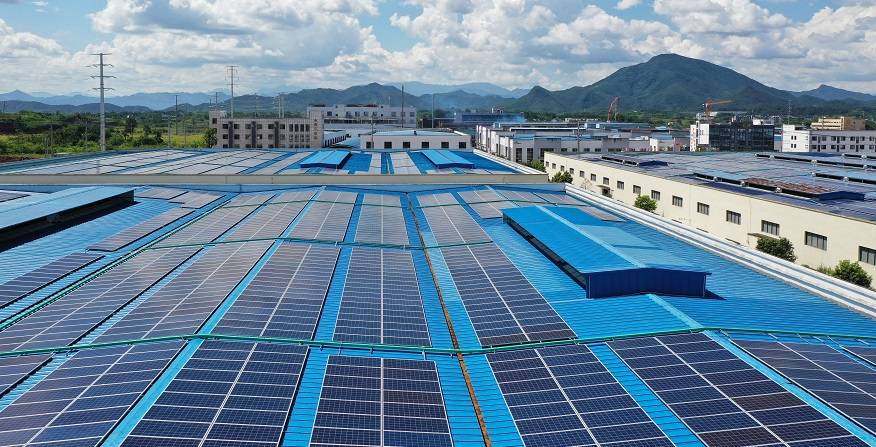
Jan. 26, 2024 17:01 Buyela ohlwini
Iyini i-EMS (uhlelo lokuphatha amandla)?
Organisations across various industries are feeling the pressure to regulate and manage their energy usage. This increased focus on Energy management systerm comes as a result of rising costs for water and electricity, as well as growing concern over the climate crisis. The need for Energy management systerm has not only become a financial concern but also a social and ecological issue.
To cope with these challenges, many organisations are now adopting an Energy management systerm System (EMS). An EMS offers numerous benefits for organisations, including lower energy bills, stronger long-term planning, increased energy security, and effective continual improvement.
So, what exactly is an EMS? According to the United Nations, an EMS is a framework that assists energy consumers, including industrial, commercial, and public sector organisations, in managing their energy use. It helps these organisations identify opportunities to adopt and improve energy-saving technologies, even those that do not require high capital investment. Implementing an EMS successfully usually requires specialised expertise and staff training.
Energy management systerm is not just about reducing costs; it also plays a crucial role in reducing the organisation's carbon footprint and protecting the natural environment. By lowering energy consumption and managing energy efficiency, organisations can reduce their reliance on external energy providers, thus decreasing the associated risks. This holistic approach to Energy management systerm considers various factors such as efficiency, performance, environment, carbon footprint, management, and continual improvement.
Implementing an EMS also has a positive impact on the environment by conserving resources and reducing energy consumption. By doing so, organisations can ultimately reduce pollution and waste while finding ways to deploy less energy or switch to more efficient energy sources.
Energy management systerm is not merely an operational concern; it has now become a strategic issue for organisations. Being competitive in today's market requires efficient resource usage, which can result in lower costs and higher profits. Additionally, increasing customer awareness of sustainability issues and stricter regulations concerning climate change and the environment are impacting organisations globally. Moreover, the finite nature of fossil fuels and the rising global demand for energy make Energy management systerm a critical strategic consideration.
Umkhankaso wokukhula okuhlanzekile kanye nokunciphisa ukukhishwa kwesisi esibamba ukushisa kuholele ekwethulweni kwezinhlelo ezifana ne-ISO 50001. Lolu hlelo luhlose ukuhlanganisa izinqubomgomo nezinhlelo zamandla zibe uhlelo olulodwa lokuphatha. Isu likahulumeni wase-UK Lokukhula Okuhlanzekile liyasibona futhi isidingo sokunciphisa kakhulu ukukhishwa kwekhabhoni nomoya ohlanzekile.

Abathengi emakethe baya ngokuya beqaphela isidingo se-decarbonisation futhi balindele ukuthi abahlinzeki bavume lesi sidingo. Ukuze kuhlangatshezwane nalokhu okulindelekile, izinhlangano kufanele zihlole ubuchwepheshe obuhlukahlukene nezinhlelo zokuqapha nokunciphisa ukusetshenziswa kwamandla.
Implementing an EMS offers several benefits for organisations. It provides a better understanding of actual energy usage, enabling effective leadership focus on energy flows and the setting of energy policy and objectives. Furthermore, it fosters a better focus among staff and other stakeholders on energy use and how it can be more efficiently managed. By identifying unnecessary, excessive, or inconsistent energy consumption, organisations can make smarter energy decisions. They can also examine the risks and opportunities associated with different energy sources, including renewable ones. Additionally, when making capital investment decisions, organisations can take into account energy considerations, such as investing in equipment or processes that consume less energy or have a lower carbon impact.
In conclusion, the increasing pressure to regulate energy usage has made Energy management systerm a crucial consideration for organisations. Implementing an EMS allows organisations to conserve energy, reduce waste, and operate more efficiently. It not only provides financial benefits but also addresses social and ecological concerns. By adopting an EMS, organisations can lower costs, improve long-term planning, enhance energy security, and drive continual improvement. Moreover, Energy management systerm is now a strategic issue as organisations strive to remain competitive while meeting growing customer expectations and regulatory requirements. Implementing an EMS offers a better understanding of energy usage, smarter energy decisions, and the ability to invest in equipment or processes that have a reduced energy consumption and carbon impact.
Izosuswa uma yephula umthetho
Iwebhusayithi yesithenjwa: https://www.itgovernance.eu
-
Wireless DC Charging: The Next Frontier in Contactless EV Power Delivery
IzindabaAug.04,2025
-
Hybrid BMS Energy Controls: Integrating Renewable Energy Sources
IzindabaAug.04,2025
-
Blockchain for Secure and Decentralized EMS Power Systems
IzindabaAug.04,2025
-
AI-Driven for Smart Grids: Energy Management System (EMS)
IzindabaAug.04,2025
-
Advanced Distribution Management System (ADMS) Energy
IzindabaAug.04,2025
-
5G-Enhanced BMS Energy Savings: Ultra-Low Latency Control
IzindabaAug.04,2025























